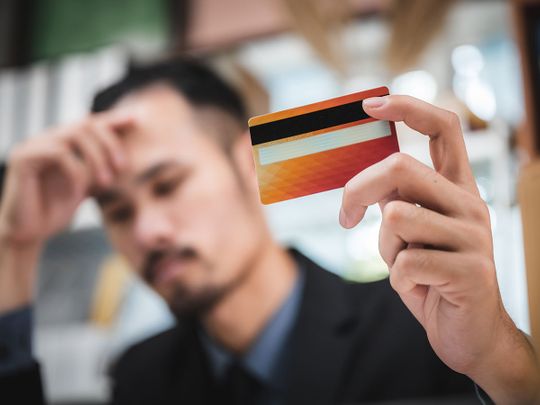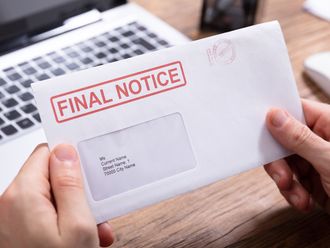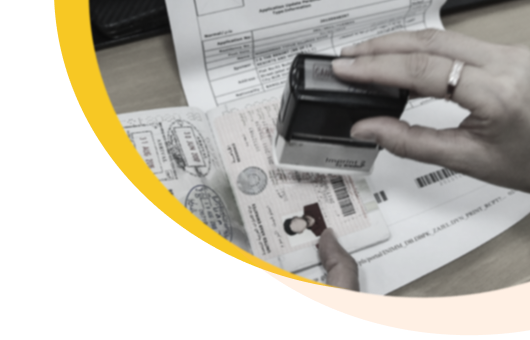
Dubai: After years of struggling with an unsurmountable pile of debt, let’s say you're now finally debt-free, have extra cash to spend each month and your credit score is higher than ever. So what’s next for you? Do you now stay away from high-interest debts like credit cards altogether?
“You may not think you're ready to use credit cards and risk falling into a deep debt trap again, and doubt yourself whether to restart just to earn rewards for each dirham you spend,” said Essam Kabeelali, a UAE-based consumer credit advisor. “But it’s not worth stopping yourself completely.
“Why should a bitter experience with high-interest debt keep you away from using them altogether? You're debt-free and have a much better grasp on your spending now. Plus, paying off debt has helped you develop the discipline to avoid letting your spending get out of hand.”
While it's great to feel confident, many financial advisers say you should probably still err on the side of caution to avoid any more credit mishaps. It's true you may be ready for credit cards, but there are still precautions you'll want to take right away, they say.
Rule #1: Review spending frequently, make frequent payments — especially at first
Rule #2: Use credit cards for fixed bills only, as part of a monthly spending plan
Rule #3: Hold off on using credit cards for rewards if you're not certain
Make a habit of reviewing your spending, often at first
Kabeelali agreed one of the first steps to take when restarting your credit card spending is to review your spending often. "I suggest reviewing every few days or at least weekly at a minimum, at least at first, although you can tailor this advice to your lifestyle and needs,” he added. But why does it help?
“By reviewing your spending at least once a week, you check to see if using a credit card has brought on any of your old spending habits. This way you can make sure you're not using credit as an excuse to splurge, and that all you've purchased can be paid off quickly when your bill becomes due.”
Naish also suggested making more than one payment each month. “If you have access to your account online, you can usually make pre-set payments from your savings account instantly. This allows you to keep your balance from accumulating and lets you maintain a low ‘credit utilisation’.”
Credit utilisation is the percentage of your total credit you're using, also known as amounts owed from the limit made available to you. “By making frequent payments, you can stay on top of your spending, take advantage of credit card rewards, and avoid credit card debt,” added Naish.
Why should a bitter experience with high-interest debt keep you away from using them altogether? You're debt-free and have a much better grasp on your spending now
Start using credit cards as part of a monthly spending plan?
Kabeelali also suggested using credit cards as part of a monthly spending plan if you want to make the most of rewards without falling back into debt. “Try writing out a budget for the month, then make sure you never charge more on that card than you would if you were paying in cash,” he said.
“Ensure it’s never an amount that can't be paid off each month. If you don't track it, credit card dues can get big very quickly. I still compare my spending to my budget at least once a week to earn travel rewards points good for airfare or hotels while making sure the spending isn't getting out of hand.”
Naish offers a payment strategy for people who want to ease into credit use slowly when it comes to paying their routine or everyday bills: “Try paying only recurring bills with credit and use cash or debit for everything else. Recurring bills include any bills you pay monthly.
“Very often, you can even set these bills up to be charged to your card automatically. From there, you can set up automatic payments so your credit card bills are paid once a month from your savings account. This also helps to maximise rewards while avoiding debt problems.

How to maximise rewards while avoiding debt problems
"For example, let’s say a certain recurring bill is Dh1,000 per month and it is automatically charged to your credit card where you earn points used to take a family vacation. But you also set up a monthly bill pay to automatically send Dh1,000 per month to pay off the card."
For any debt strategy to work, Kabeelali said you need to make sure you don't use your credit card too often. “If you want to benefit from your recurring expenses without worrying about getting into trouble, then you have to make sure you're not using your card for regular spending.
“Finally, if all of this sounds overwhelming or the mere thought of using credit has you nervous, don't forget that you don't have to jump in. For many, the risk of getting back into debt is simply too great.”
While you may be able to earn 2 per cent cashback on your purchases, what happens if you wind up paying 24 per cent interest on those purchases for years? So while sign-up bonuses can make the initial rewards sweeter, it's still a terrible deal when you're stuck paying credit card interest for long.
Bottom line?
“Pursue credit card rewards if you're determined to do it responsibly, but don't forget there's nothing wrong with skipping credit altogether. The rewards may be tempting, but the risks are downright scary,” added Kabeelali.














